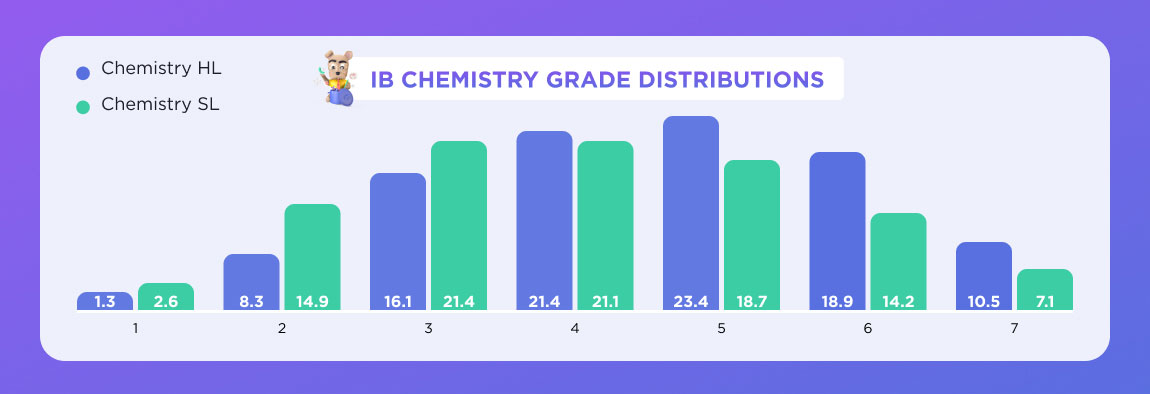Unlocking the World of Career Opportunities with IB Chemistry
IB Chemistry is a demanding yet enriching course that delves into the intricate world of chemical principles. This comprehensive guide will walk you through all the essential aspects of IB Chemistry, including the syllabus, grading system, exam format, and tips to excel. Whether you're currently enrolled or considering taking this course, read on to discover everything you need to know about IB Chemistry.
Why Study IB Chemistry?
IB Chemistry is a prestigious course that offers students a profound understanding of the fundamental principles of chemistry. The study of chemistry is not only fascinating but also essential for a myriad of fields, including medicine, engineering, and environmental science. It serves as the backbone of the pharmaceutical industry, playing a critical role in the development of new drugs and treatments. According to the Royal Society of Chemistry, more than 96% of all manufactured goods have direct ties to the chemical industry, underscoring its pervasive influence in everyday life.
Moreover, pursuing IB Chemistry provides several distinct advantages. It enjoys global recognition from universities and holds significant weight in admissions decisions. The skills and knowledge acquired through this course are exceptionally transferable, applicable across various domains. By embracing IB Chemistry, students open doors to diverse opportunities in science-related fields. It offers a solid grounding in chemistry's fundamental principles and enhances the likelihood of receiving offers from esteemed universities worldwide.
Is IB Chemistry Hard?
Undoubtedly, IB Chemistry is renowned as one of the most demanding subjects within the IB programme, earning a reputation for its complexity. According to the International Baccalaureate Organization (IBO), Chemistry consistently ranks as one of the most challenging subjects for IB students. In 2023, it achieved an average score of 4.4 out of 7. The pass rate for IB Chemistry stood at 82.4%, with a mere 11.9% of students securing the coveted grade of 7. This performance places it on a higher difficulty scale than many other science subjects.

Mrs. Rodes, an experienced IB Chemistry teacher based in the UK, offers her insights:
"IB Chemistry is a challenging subject because it necessitates a deep understanding and practical application of a wide range of complex concepts. Students must cultivate critical thinking skills to fully grasp the subject matter, and the course demands proficiency in mathematics for equation manipulation and problem-solving."
Exploring Career Opportunities with IB Chemistry
For students immersed in the world of IB Chemistry, the exciting journey doesn't end with the final exam. Instead, it serves as a launching pad for a wide array of dynamic career opportunities. Here, we'll explore some of the promising career paths that open up to those with a solid background in chemistry.
-
Medicine: If you're drawn to the field of healthcare, IB Chemistry provides a valuable foundation. Medical schools often require applicants to possess a strong grasp of chemistry. Beyond that, medical professionals may specialize in areas like pharmacology or toxicology, where chemistry knowledge is indispensable.
-
Environmental Science: Environmental science is an ever-growing field dedicated to understanding and safeguarding the natural world. Armed with a chemistry background, you can contribute to sustainable material development, pollution monitoring, or innovative energy production methods.
-
Materials Science: Materials science delves into the properties and behavior of various materials, with applications ranging from construction to electronics. With your chemistry knowledge, you could investigate molecular structures, develop new composites, or analyze material properties.
-
Science Communication: For those with a flair for communication, science communication is an enticing option. This field involves translating complex scientific concepts into accessible language for the general public. Opportunities abound as science journalists, writers, or public relations professionals.
-
Education: Sharing your passion for chemistry can lead to a fulfilling career in education. Whether you choose to teach high school or college students, educating the next generation can be highly rewarding and impactful.
These are just a few examples of the myriad career paths available to individuals with a strong foundation in chemistry.
With a robust chemistry foundation, you'll be well-prepared to explore diverse career paths, from healthcare to environmental science and beyond. If you have a passion for chemistry and are up for the challenge, embarking on an IB Chemistry journey could be the ideal choice for your future.
Unleash your true potential today and sign up with Blen!


